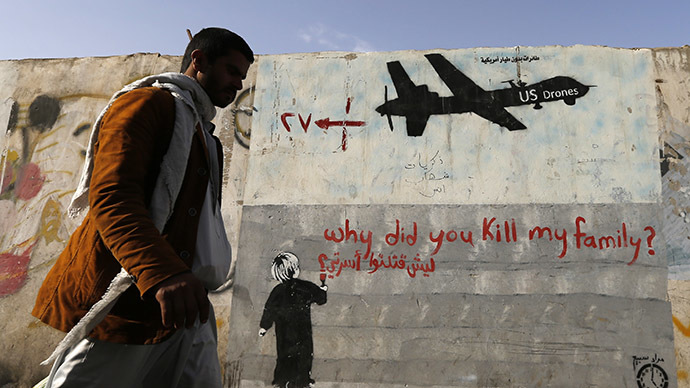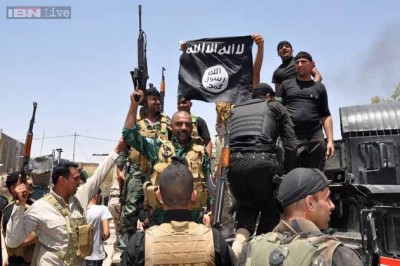
We are only beginning to evaluate what SYRIZA’s victory may mean for the Eurozone. As a matter of fact, this victory is calling Germany’s bluff and forces into the open its double talk about the Eurozone. Yet, deprived as it is of room for manoeuver, Germany might react violently and indirectly provoke the dissolution of the Eurozone, even though it is presently its mean beneficiary. In order to make this understandable, we must here remember a few facts.
The truly historic victory of SYRIZA in Greece has catapulted its leader, the charismatic Alexis Tsipras, under the limelight. It befits to be reminded that his party is in reality an alliance regrouping former leftists, former communists, ecologists and former socialists. What is cementing this improbable alliance and explains its success, with over 36% of votes expressed, is in reality much deeper, but also much more complex than the « social question. » Not that the latter is not important, and even tragic. One can understand the refusal of a murderous austerity which has been savaging the population ever since 2010. But there is also the question of national sovereignty. The refusal to submit to the injunctions of Brussels and of the European commission, which was expressed on the very first day following the elections, is a very important dimension in SYRIZA’s victory. The social question, upon which the French commentators are focusing, however important it may be, does not explain everything. In reality, SYRIZA has engaged in a fight for the sovereignty of the Greek people, against the bureaucrats of Brussels and Frankfurt, seat of the European Central Bank. The victory of SYRIZA may be a harbinger of the one of PODEMOS in Spain in early autumn. And, just as in SYRIZA, the soverenist component is far from negligible in PODEMOS, or for that matter in the Irish party who will also try a run for victory in early 2016, the SIN FEINN.
Beyond the symbols, there are actions. And the first actions of Tsipras have been very strong signals sent to the authorities in Brussels. First of all, he has constituted his government by making an alliance with the party of “Independent Greeks,” or AN.EL. Many consider that this is an alliance against nature between the far-left and the right. But such a judgement reflects precisely their misunderstanding of SYRIZA’s fight, and its reduction to the sole social question. What justifies the alliance between SYRIZA and the « Independent Greeks, » is precisely the fight for the independence of Greece. Tsipras, right in his first speech, spoke about the newly found independence of his country from a European Union overtly described as an oppressor. The second strong action of the new government, which has had no echo in the French press but which is fundamental, has been to dissociate itself from the EU declaration about Ukraine. Once again, as could be expected, the European Union was condemning Russia. Tsipras has said loud and clear that Greece did not approve this declaration, neither in substance nor in form. However, this point is going to become more and more important. The policies of the European Union concerning international affairs are of anintergovernmental nature. This implies that decisions be taken unanimously [1]. The new Greek government is therefore reproaching the EU for this decision to have been taken without respecting the procedures internal to the EU [2]. It is clear forthwith that the EU will no longer be able to behave as before concerning Russia as well as Ukraine. The third action was the decision of the government, announced by the new minister of finances M. Varoufakis, to immediately suspend the privatization of the harbour of Piraeus. This decision signals the end of the auctioning off of Greece for the profit of foreign countries. Here again, we find the necessity to affirm Greek sovereignty. But this decision is also a severe blow dealt to the various companies who had sat themselves down at table before this juicy market.
The German dilemma
We must then try to understand the position of Germany. The declaration of the Minister of the Economy, M Sigmar Gabriel, is luminous in this regard. He declared: “a principle of justice must be respected, as far as our population is concerned [3].” He stressed that this notorious « principle of justice » needed to be applied in favour of « the people in Germany and in Europe (…) who showed their solidarity” (with the Greeks). In reality, the aid in question went mainly to European banks which had bought a large share of the Greek debt. There has been no “solidarity,” only a well understood principle of the socialisation of losses. Nevertheless, we must ask ourselves about the “why?” of his declaration.
Germany does not want the Eurozone to become a “transfer union.” This has been a constant ever since the beginning of negotiations on the Eurozone. We can well understand this, for if the principles of a real “federalism” were applied (the way they are inside a country like France) Germany, as a rich “region” in the Eurozone, would have to contribute as much as 8-9% of its GDP per year, over a period of ten years at least. One can consider that this would end up breaking the back of the German economy. But Germany wants – on the other hand – the advantages of the single currency and an unchanging exchange rate with its “customer” countries. That’s where the shoe hurts. Indeed, either Germany accepts a new – and very thorough restructuration of the Greek debt (or a moratorium on it), and it will immediately be seized upon by similar demands from countries like Portugal, Ireland, Spain and Italy. Or Germany adopts a “hard” position, wrapped in obscene whinings like those of Sigmar Gabriel (and forgetting all the restructurings of German debt which occurred during the XX. Century) and provoke a showdown with Greece. But then, the risk is big to see Greece leaving the Euro, and a process of contagion taking place.
As a matter of fact, and whatever Germany will do, it will be confronted with this process of contagion, either inside the Euro (and with ever mounting pressure to see its contributions increasing) or outside, with a probable dislocation of the Eurozone. Germany still has a choice, but it is a choice between evils. And one might conjecture that, in this case, it will end up choosing, for itself, and more precisely for its leaders, that which will appear as the lesser one: the break-up of the Eurozone. But Germany cannot, for historical reasons, bear the responsibility for the destruction of this zone. It will have to saddle it on the Greeks, at all costs, even if it means deploying the most massive bad faith.
In any case, the future looks bleak for Germany who is understanding at present that it is stuck in a trap, the very trap in which it had thought to shut in the other countries. Whatever way out it will be choosing, Europe, which is at present a form of German property, will come out of it weakened. But this weakening really has its origins in the fact that Germany has knowingly practiced a “lone ranger” policy while pretending to adhere to federal mechanisms. Double talk always comes at a cost, and in this case the cost will be especially high.
Anticipation by the ECB?
We must then go back to the conference of Mario Draghi on Thursday, January 22. We have already pointed out the importance of the limitation at 20% of the ECB’s guarantee on the new purchases of securities. [4] But one may well ask if, in reality, Mario Draghi was not anticipating the situation to come, and the probable disintegration of the Eurozone. One may read his policies, and his declarations, as the following choice: no mutualization of debts if there is no economic mutualization (budgetary, in particular). This is a very reasonable position. The mutualization of debts would make sense only if one ended up rapidly with a system of economic and budgetary mutualization. However, Mario Draghi is not ignorant of the fact that Germany is strongly opposed to such a mutualization. Which is why he is organizing the monetary fractioning of the debt market, and in so doing the re-nationalization of the latter. This could very well be the last stage before a dissolution of the Eurozone.
But, in order for there to be an « organized » dissolution, Germany would have to recognize the dilemma into which it has been thrown by its very own policies. There is very little probability that the German leaders, be they from the CDU-CSU or the SPD – who all have colluded with this policies, will accept it. Let’s say it upfront, the probability is low indeed. The path we should be expecting things to be taking is the one of a rising confrontation with Greece driving the latter to default on its debt and to be « expulsed » from the Eurozone, not formally (for nothing allows to do this) but in fact. The ECB will stop furnishing the Greek Central Bank and will decide that the « euros » emitted in Greece can no longer circulate in the rest of the Eurozone. We note that mechanisms of this type have already been implemented before, granted over a very short period, against Cyprus.
It is clear also that the Greek government is preparing for a scenario of this type. It is going to realize a budget in strict equilibrium, in exchange of course for affecting to other expenses the spendings earmarked for interest payment on the debt. But if this policy makes sense for Greece, it doesn’t by any means do so for the Eurozone, which will then be confronted with a massive crisis of distrust, and a rapid contagion to other countries. This will be the scenario of the “dislocation” of the Eurozone.
It would be matter a lot if our French political personnel began to prepare for this. But one may fear that, living as it does in a bubble and practicing a peculiar form of political autism, it will have seen nothing coming and be confronted with reality in a very brutal way.

 FILE PHOTO: A bulldozer demolishes the bombed out building of the American embassy in Beirut. (Reuters)
FILE PHOTO: A bulldozer demolishes the bombed out building of the American embassy in Beirut. (Reuters) A man walks past a graffiti, denouncing strikes by US drones in Yemen, painted on a wall in Sanaa, November 13, 2014. (Reuters/Khaled Abdullah)
A man walks past a graffiti, denouncing strikes by US drones in Yemen, painted on a wall in Sanaa, November 13, 2014. (Reuters/Khaled Abdullah)


